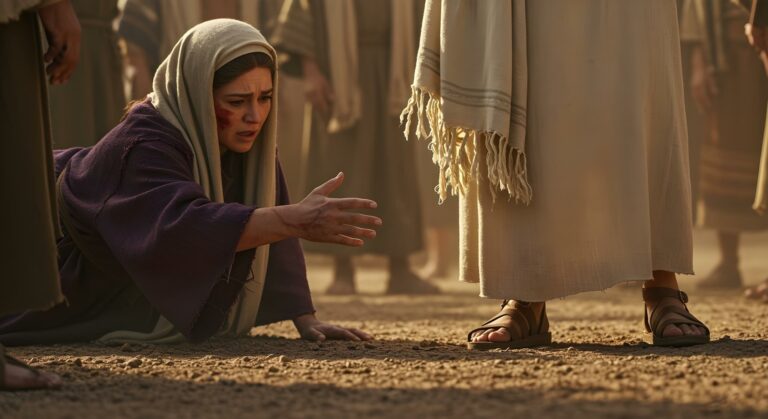In a previous post, we answered the question: “Why Do We Celebrate the Lord’s Supper?”
In this post, we want to answer the question: “How Do We Honor Christ in the Lord’s Supper?” In other words, how do we come to the Table of Christ (or not come to the Table) in a way that brings honor and glory and praise to Christ?
As we saw in the previous post, the Supper was commanded by Christ (see Luke 22:19) and the early church took this command very seriously. All faithful churches, down to this day, celebrate the Supper regularly.
If the Supper is so important, it is imperative for us to seek to understand how to celebrate it in a manner that honors Christ. Below I’d like to offer a few thoughts:
The first way we may honor Christ in the Supper is by recognizing the true meaning of the Lord’s Supper. Jesus said in 1 Cor. 11:24-26:
“‘This is My body, which is for you; do this in remembrance of Me.’ In the same way, He took the cup also after supper, saying, ‘This cup is the new covenant in My blood; do this, as often as you drink it, in remembrance of Me.” For as often as you eat this bread and drink the cup, you proclaim the Lord’s death until He comes.”
The Lord’s Supper is a solemn time in which believers remember the death of Jesus Christ for us. The breaking of the bread and pouring out of the wine or juice should remind us of that solemn night at the Last Supper when Jesus was betrayed and eventually crucified. As we hear the Words of Institution recited, as we see the bread broken and juice poured, as we taste of the body and blood of Christ, we look through these sensory experiences to the reality of Christ’s death and remember that this is more than an ordinary meal, but a commemoration of a horrific, yet glorious, event that took place some 2,000 years ago. As we receive the elements of this sacrificial meal, we are tangibly reminded of our unbreakable union with Christ which was secured for us in the death that Jesus died. In remembering the true meaning of the Supper, we honor Christ.
The second way we honor Christ in the Supper is by receiving the Supper in faith. This goes beyond mere mental recognition of the meaning of the Supper. A person may have an accurate understanding of what the Supper is and the purpose it serves, yet fail to believe that Christ actually does offer Himself for them personally. Such a person is not benefited by the Supper, and Christ is not honored in their partaking of it. Calvin puts it this way:
“Wherefore, let it be a fixed point, that the office of the sacraments differs not from the word of God; and this is to hold forth and offer Christ to us, and, in him, the treasures of heavenly grace. They confer nothing, and avail nothing, if not received in faith, just as wine and oil, or any other liquor, however large the quantity which you pour out, will run away and perish unless there be an open vessel to receive it. When the vessel is not open, though it may be sprinkled all over, it will nevertheless remain entirely empty.”1
The Word of God and the sacraments of the Church are only beneficial to those who receive them with faith (see for instance, Hebrews 4:1-2). As we come to the Table, we should come with faith–as “open vessels”. If our hearts are filled with doubts, let us pray the prayer of the father of the boy with the evil spirit in Mark 9:24: “I do believe; help my unbelief.” We honor Christ in the Supper when we partake it in faith–even with the faith of a mustard seed.
The third way we honor Christ in our partaking of the Supper is by seeing our need for it. People of faith recognize that faith itself is no shield from the world’s problems or dilemmas. Needs don’t suddenly go away because a person believes. In fact, faith often makes a person more aware of their neediness and fragility. This awareness is manifest in the believer’s approach to the Supper. For them, the Supper represents their need for regular nourishment, both physical and spiritual. By partaking of the Supper regularly we are reminding ourselves of our ongoing need for Christ and His forgiveness; we are receiving Christ’s offer of Himself for our sins again and again. Howard Griffith writes:
“Why then did Jesus command his disciples to eat and drink, and to do so repeatedly? So that they might have the assurance of sins forgiven. The bread taken and eaten, the wine drunk, represent the application of salvation to believers, because Christ’s words gave them and continue to give them that meaning.”2
Being a Christian is more than a moment in time when we “prayed a prayer” and “surrendered”, it is an ongoing embrace of the good news of the gospel, that Christ offered Himself for us. We honor Christ in the Supper when we recognize our ongoing need for Jesus as we come to the Table.
The fourth way we honor Christ in our partaking of the Supper is by respecting the boundaries of the Supper put in place by Christ Himself. If faith is necessary to honor Christ in the Supper (as stated above), then it follows that those who have not received the Lord Jesus by faith should abstain.3 In 1 Corinthians 10:16 Paul says:
“Is not the bread which we break a sharing in the body of Christ?”
How can those who have not yet received Christ in faith “share” in His body? In the words of Anthony Carter:
“Communion, or common union, is born out of union with Christ. Only those in union with Christ have fellowship with Him. They share in His body and His blood and are consequently united to Him (John 6:56). The unconverted has no fellowship with Christ. The unconverted has no union with Him. There is no promise of Christ’s abiding with him. He has no portion in the body of Christ broken or the blood of Christ shed. Consequently, there can be no sharing in the elements that signify the person and work of Christ for the church (1 Cor. 11:24). The converted, on the other hand, discern that such are the blessings of being united to Christ.” 4
But there is another group that should also abstain from the Supper: the unrepentant. In 1 Cor. 11:28 and 29 Paul says:
“Let a person examine himself, then, and so eat of the bread and drink of the cup. For anyone who eats and drinks without discerning the body eats and drinks judgment on himself.” (ESV)
Again, in the words of Anthony Carter:
“The Christian life is the examined life, the life that takes seriously the call to repentance and the promise of forgiveness (1 John. 1:8–9; 2:1). Unfortunately, there are those who deny the grace of repentance by hardening their hearts and refusing to forgive or be forgiven. Those who refuse to acknowledge their sin, but harbor bitterness, malice, and hatred in their hearts, and refuse godly counsel toward reconciliation with God and others, and thus neglect the grace of repentance—let them refrain from the Lord’s Table. Otherwise, to eat and to drink in such a state is to call forth the disciplining hand of God (1 Cor. 11:32).”5
If we desire to honor Christ in the Supper we must honor the boundaries that Christ Himself has put into place.
The last thought I have for you is this: we honor Christ by making ourselves available to partake of the Supper as often as possible. If all that I have said above is true, it is imperative that we make ourselves available to partake of the Supper. It will nourish and enliven your faith.
If your church celebrates the Supper every week, missing a week here and there will present no major problem. However, if your church only celebrates the Supper once a month or once a quarter, it is imperative, if at all possible, that you make every effort to be present. Christ is eager to meet you there and to give you more of Himself.
- John Calvin, “The Institutes of the Christian Religion,” Book 4, Section 17. ↵
- Spreading the Feast (P&R, 2015), 47-48. ↵
- This point has not been controversial until recently. In the 2,000 year history of the Church, I am personally not aware of any movement in the Church where non-believers were allowed to partake of the Supper, that is, until recently. This should give us tremendous pause when we see some current day leaders in the Church opening the table to anyone and everyone. ↵
- See the article “When Should You Not Take Communion?” at https://www.ligonier.org/blog/when-should-you-not-take-communion/. Accessed on 08/23/18. ↵
- See the article “When Should You Not Take Communion?” at https://www.ligonier.org/blog/when-should-you-not-take-communion/. Accessed on 08/23/18. ↵



